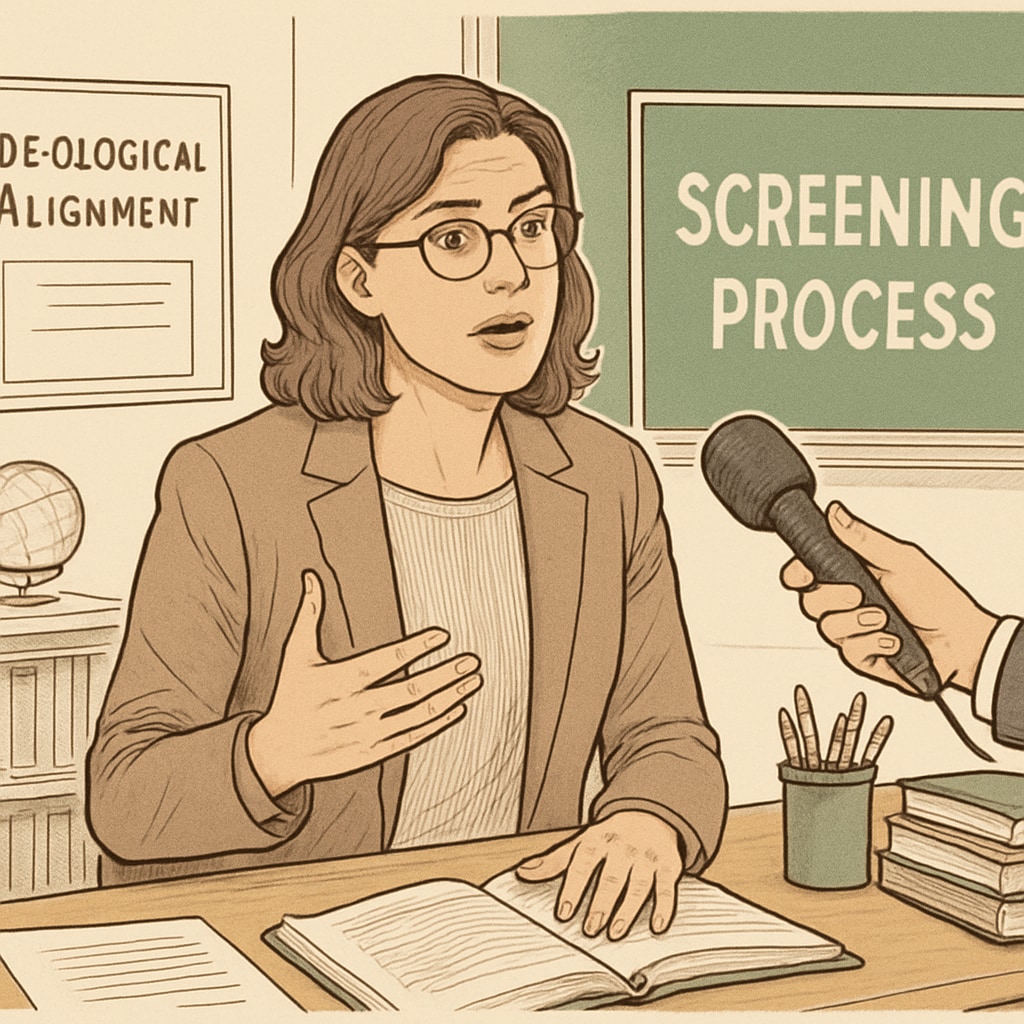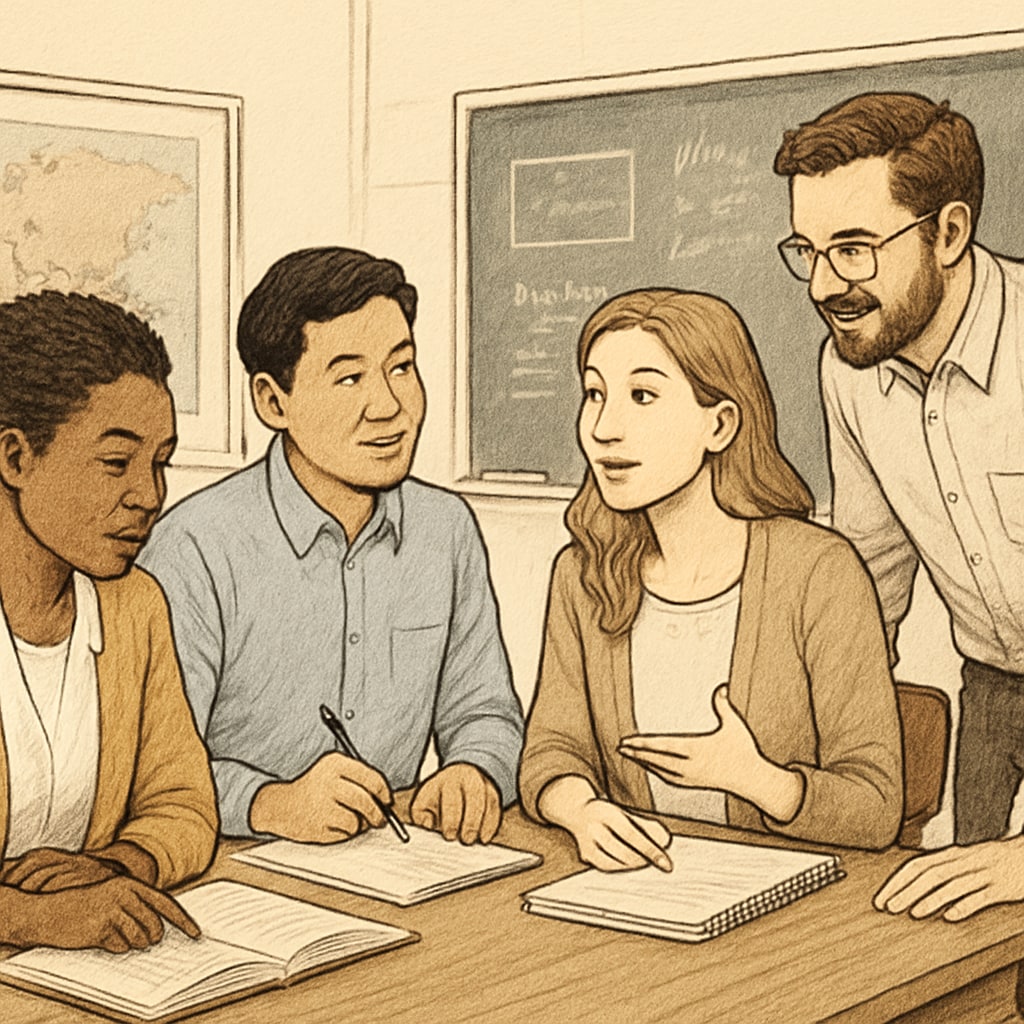In recent months, Oklahoma has introduced a controversial requirement for out-of-state teacher applicants: a political inclination test. This policy has ignited debates about the role of ideology in education, with critics questioning its fairness and educators concerned about its implications for diversity and neutrality in schools. In this article, we explore the ripple effects of such a policy on teacher recruitment, educational balance, and the fostering of diverse perspectives.
Political Inclination in Teacher Recruitment: A New Norm?
The introduction of political inclination tests in teacher applications has raised significant questions about the intersection of education and ideology. While the exact nature of Oklahoma’s screening process remains opaque, its intent appears to be ensuring that incoming educators align with certain values deemed “appropriate” for the state’s educational system. Proponents argue this helps maintain a unified educational framework, but opponents see it as a slippery slope toward suppressing diverse viewpoints.
Such measures are not entirely unprecedented. Similar trends have emerged in other states, albeit less explicitly. For example, political correctness debates in education have often focused on content rather than the individuals teaching it. However, Oklahoma’s policy shifts the focus squarely onto educators’ personal beliefs, making it a unique and contentious case.

Implications for Educational Neutrality and Diversity
Education is often considered a neutral platform where students are exposed to a variety of ideas, enabling critical thinking and informed decision-making. The Oklahoma policy challenges this notion by potentially creating an environment where only certain ideologies are represented. This has far-reaching implications:
- Restricted Academic Freedom: Teachers may feel pressured to conform to a specific narrative, limiting their ability to present multiple perspectives.
- Diminished Diversity: By filtering applicants based on ideology, schools risk becoming echo chambers, depriving students of exposure to diverse viewpoints.
- Recruitment Challenges: Such policies could deter qualified educators from applying, exacerbating teacher shortages in an already strained system.
For example, a teacher from a different state or cultural background might bring valuable insights to the classroom. If barred due to ideological differences, both students and the broader educational ecosystem lose out.

Balancing Educational Standards and Ideological Freedom
Striking a balance between maintaining educational standards and respecting ideological freedom is no easy task. Advocates for Oklahoma’s policy argue that it ensures educators do not promote divisive or harmful ideologies. However, critics argue that this approach risks conflating personal beliefs with professional conduct.
One potential solution lies in focusing on professional qualifications and teaching competencies rather than personal ideologies. For instance, many states have adopted performance-based evaluations that assess teachers based on classroom effectiveness rather than their personal beliefs. This method prioritizes educational outcomes while respecting individual rights.
Additionally, fostering transparent dialogue between policymakers, educators, and communities can help address concerns without resorting to polarizing measures. By involving multiple stakeholders, states can create policies that uphold both educational quality and ideological inclusivity.
The Bigger Picture: Education at a Crossroads
Oklahoma’s ideological screening policy is symptomatic of broader societal debates about the role of politics in education. As schools increasingly become battlegrounds for cultural and ideological disputes, the core mission of education—to prepare students for a diverse and dynamic world—risks being overshadowed.
It is essential to remember that the classroom is not just a space for instruction but also a microcosm of society. By fostering an environment that values diverse perspectives, schools can prepare students to navigate a world where differing opinions coexist. Policies like Oklahoma’s, however, risk undermining this goal by prioritizing conformity over critical engagement.
As states like Oklahoma continue to experiment with ideological screening, the education sector must grapple with the question: What kind of future are we preparing our students for? The answer will shape not only the next generation of learners but also the educators entrusted with their development.
Readability guidance: The article uses short paragraphs and lists to enhance clarity. Transitions like “however,” “for example,” and “in addition” ensure smooth flow. Passive voice is minimal, and complex ideas are broken down for accessibility.


